- Home
- Jack Higgins
The President’s Daughter
The President’s Daughter Read online
The President’s Daughter
Jack Higgins
Twenty years after his affair with a beautiful Frenchwoman in Vietnam, Jake Cazalet finds out he has a daughter. He must keep it a secret – but years later, when he is President of the United States, someone discovers the truth. And when his only child is kidnapped by a terrorist group, he must count on British operative Sean Dillon and FBI agent Blake Johnson to find her.
Jack Higgins
The President’s Daughter
The sixth book in the Sean Dillon series, 1997
In fond memory
of my dear friend George Coleman
There is more truth in one sword than in ten thousand words.
– THE KORAN
VIETNAM
1969
ONE
Jake Cazalet was twenty-six years old when it happened, the incident that was to have such a profound effect on the rest of his life.
His family were Boston Brahmins, well respected, his mother hugely wealthy, his father a successful attorney and Senator, which meant that the law seemed the natural way to go for young Jake. Harvard and the privileged life, and as a college student it was possible to avoid the draft and Vietnam seemed far away.
And Jake did well, a brilliant student who got an excellent degree and moved on to Harvard Law School with enormous success. A great future was predicted. He started on a doctorate, and then a strange thing happened.
For some time, he had been disturbed by the scenes from Vietnam, the way he saw that brutal war portrayed on television each night. Sometimes it seemed like a vision from hell. A sea change took place as he contrasted his comfortable life with what life seemed like over there. The ironic thing was that he could actually get by in Vietnamese, because at the age of thirteen he had lived in Vietnam, when his father had spent a year at the U.S. Embassy.
And then came the day in the cafeteria at college. People were lining up for the lunch counter, lots of new students, and amongst them one who was no more than twenty, dressed in white tee shirt and jeans like anyone else, books under one arm, the difference being that where his right arm had been there was now only a small stump. Most people ignored him, but one guy, a swaggering bully whose last name was Kimberley, turned to look at him.
“Hey, what’s your name?”
“Teddy Grant.”
“You lose that over there in ’ Nam?”
“That’s about the size of it.”
“Serves you right.” Kimberley patted his face. “How many kids did you butcher?”
It was the pain on Grant’s face that got to Cazalet and he pulled Kimberley away. “This man served his country. What have you ever done?”
“So what about you, rich boy?” Kimberley sneered. “I don’t see you over there. Only over here.” He turned and patted Grant’s face again. “If I come in anywhere, you step out.”
Jake Cazalet’s only sport was boxing and he was on the team. Kimberley had twenty pounds on him, but it didn’t matter. Spurred on by rage and deep shame, he gave Kimberley a double punch in the stomach that doubled him over. A boxing club he went to in downtown Boston was run by an old Englishman called Wally Short.
“If you’re ever in a real punch-up, here’s a useful extra. In England, we call it nutting somebody. Over here it’s head-butting. So, use your skull, nine inches of movement, nice and short, right into his forehead.”
Which was exactly what Cazalet did as Kimberley came up to grapple with him, and the big man went crashing back over a table. Pandemonium followed, girls screaming, and then security arrived and the paramedics.
Cazalet felt good, better than he had in years. As he turned, Grant said, “You damn fool, you don’t even know me.”
“Oh, yes, I do,” Jake Cazalet said.
Later, in the Dean’s office, he stood at the desk and listened to the lecture. The Dean said, “I’ve heard the facts and it would seem that Kimberley was out of line. However, I can’t tolerate violence, not on campus. I’ll have to suspend you for a month.”
“Thank you, sir, but I’ll make it easy for you. I’m dropping out.”
The Dean was truly shocked. “Dropping out? But why? What will your father say? I mean, what are you going to do?”
“I’m going to go right down to that recruiting office downtown and I’m going to join the army.”
The Dean looked devastated. “Jake, think about this, I beg you.”
“Good-bye, sir,” Jake Cazalet told him and went out.
So here he was eighteen months later, a lieutenant in Special Forces by way of the paratroops – his knowledge of Vietnamese had seen to that – and halfway through his second tour, decorated, twice wounded, a combat veteran who felt about a thousand years old.
The Medevac helicopter drifted across the Delta at a thousand feet. Cazalet had hitched a lift because it was calling at a fortified camp at Katum and they needed him there to interrogate a high-ranking Vietnamese regular officer.
Cazalet was only five feet six or seven, with the kind of hair that had red highlights. His eyes were brown, his broken nose a legacy of boxing days and, in spite of the tan, the bayonet scar that bisected his right cheek was white. It was to become his trademark in the years ahead.
Sitting there now in his camouflaged uniform, sleeves rolled up, the Special Forces beret tilted forward, he looked like what war had made him, a thoroughly dangerous man. The young medic-cum-air gunner, Harvey, and Hedley, the black crew chief, watched him and approved.
“He’s been everywhere, or so they say,” Hedley whispered. “Paratroops, Airborne Rangers, and now Special Forces. His old man’s a Senator.”
“Well, excuse me,” Harvey said. “So what do you get for the man who has everything?” He turned to toss his cigarette out of the door and stiffened. “Hey, what gives down there?”
Hedley glanced out, then reached for the heavy machine gun. “We got trouble, right here in River City, Lieutenant.”
Cazalet joined him. There were paddy fields below and banks of reeds stretching into infinity. A cart was blocking the causeway that crossed the area and a local bus of some sort had stopped, unable to continue.
Harvey peered over his shoulder. “Look, sir, it’s pajama night at the Ritz again.”
There were Vietcong down there, at least twenty, in their conical straw hats and black pajamas. A man got out of the bus, there was the distinctive crack of an AK47, and he fell. Two or three women emerged and ran, screaming, until the rifle fire cut them down.
Cazalet went to the pilot and leaned over. “Take us down and I’ll drop out and see what I can do.”
“You must be crazy,” the pilot said.
“Just do it. Go down, drop me off, and then get the hell out of here and fetch the cavalry, just like good old John Wayne.”
He turned, found himself an M16 and several pouches of magazines, and slung them around his neck. He clipped half a dozen grenades to his belt and stuck some signaling flares in the pockets of his camouflage jacket. They were going down fast and the V.C. were shooting at them, Hedley returning the fire with the heavy machine gun.
He turned, grinning. “You got a death wish or something?”
“Or something,” Cazalet said, and as the helicopter hovered just above the ground, he jumped.
There was a call. “Wait for me.” When he turned, Harvey was following him, his medical bag over one shoulder.
“Crazy man,” Cazalet said.
“Aren’t we all?” Harvey replied, and they ran through the paddy field to the causeway as the helicopter lifted and turned away.
There were more bodies now and the bus was under heavy rifle fire, windows shattering. Screams came from inside, and then several more women e
merged, two of them running for the reeds, and three Vietcong emerged on the road farther along, rifles ready.
Cazalet raised his M16 and fired several short bursts, knocking two of them down. There was silence for a moment and Harvey knelt beside one of the women and tried for a pulse.
“She’s had it, for a start,” he said, turning to Cazalet, and then his eyes widened. “Behind you.”
In the same moment, a bullet took Harvey in the heart, lifting him onto his back. Cazalet swung, firing from the hip at the two who had emerged on the causeway behind him. He caught one and the other slipped back into the reeds. Now there was only silence.
There were five people left alive in the bus, three Vietnamese women, an old man traveling to the next village, and a dark-haired, pretty young woman who looked badly frightened. She wore a khaki shirt and pants and the shirt was stained with blood, someone else’s, not hers.
She’d been speaking in French to the old man earlier, and now he turned to her as a single bullet hit the fuel tank of the bus and flames erupted.
“Not good staying here, we must hide in the reeds.” He repeated what was presumably the same message in Vietnamese to the women.
They shouted something back to him and he shrugged and said to the young woman, “They are afraid. You come with me now.”
She responded instantly to the urgency in his voice, sliding out of the door after him, crouching, then starting to move. A bullet took him in the back and she ran for her life down the side of the causeway and plunged into the great banks of reeds. Cazalet, who was in their shelter a little farther along the causeway, saw her go.
She forced her way through the water and mud, pushing the reeds aside, ploughing straight out into a dark pool to find two Vietcong confronting her on the other side, AKs at the ready. Fifteen yards away, no more, so that she could see every feature of these young faces, mere boys, not much more.
They raised their weapons, she braced herself for death, and then there was a terrible cry and Cazalet erupted from the reeds on her left, firing from the hip, blasting them both back into the water.
Voices called nearby and he said, “No talking.” He stepped back into the reeds and she followed.
They seemed to move several hundred yards until he said, “This will do.” They were on the edge of the paddy fields protected by a final curtain of reeds. A small knoll rose above the water. He pulled her down beside him. “That’s a lot of blood. Where are you hit?”
“It’s not mine. I was trying to help the woman sitting next to me.”
“You’re French.”
“That’s right. Jacqueline de Brissac,” she said.
“Jake Cazalet, and I wish I could say it was a pleasure to meet you,” he replied in French.
“That’s good,” she said. “You didn’t learn that at school.”
“No, a year in Paris when I was sixteen. My dad was at the Embassy.” He grinned. “I learned all my languages that way. He moved around a lot.”
Her face was spotted with mud, hair tangled as she tried to straighten it. “I must look a mess,” she said and smiled.
Jake Cazalet fell instantly and gloriously in love. What was it the French called it, the thunderclap? It was everything he’d ever heard. What the poets wrote about.
“Have we had it?” she said, aware of voices calling nearby.
“No, the Medevac helicopter I was going to Katum in cleared off to call up the cavalry. If we keep our heads down, we stand a good chance.”
“But that’s strange. I’ve just been to Katum,” she said.
“Good God, what for? That really is the war zone.”
She was silent for a moment. “I was searching for my husband.”
Cazalet was aware of an unbelievably hollow feeling. He swallowed. “Your husband?”
“Yes. Captain Jean de Brissac of the French Foreign Legion. He was in the Katum area with a United Nations fact-finding mission three months ago. There were twenty of them.”
What a strange sensation. Sorrow, sympathy… was that almost relief? “I remember hearing that,” he said slowly. “Weren’t they all…?”
“Yes,” she said quietly. “Caught in an attack. The Vietcong used hand grenades. The bodies were not recognizable, but I found my husband’s bloodstained field jacket, and his papers. There’s no doubt.”
“So why are you here?”
“A pilgrimage, if you like. And I had to be sure.”
“I’m surprised they let you come.”
She gave a small smile. “Oh, my family has a great deal of political influence. My husband was Comte de Brissac, a very old military family. Lots of connections in Washington. Lots of connections everywhere.”
“So you’re a countess?”
“I’m afraid so.”
He smiled. “Well, I don’t mind if you don’t.”
She was about to say something when they heard voices nearby, shouting to each other, and Cazalet called out in Vietnamese.
She was alarmed. “Why did you do that?”
“They’re beating through the reeds. I told them there was no sign of us over here.”
“Very clever.”
“Don’t thank me, thank my dad for a year at the Embassy in Saigon.”
“There, too?” she said, smiling despite herself.
“Yes, there, too.”
She shook her head. “You are a most unusual man, Lieutenant Cazalet.” She paused. “I suppose, if we get out of this, that I owe you something. Would you have dinner with me?”
Jake grinned. “Countess, it would be my pleasure.”
There was the distant thud of rotors rapidly approaching and several Huey Cobra gunships came in, line astern. Cazalet took two recognition flares from his pocket, a red and a green, and fired them up into the sky. The sound of the Vietcong voices faded as they retreated and Cazalet took her hand.
“The cavalry arriving in the nick of time, just like the movies. You’ll be okay now.”
Her hand tightened in his as they waded out into the paddy field and one of the gunships landed.
The Excelsior was French Colonial from the old days and the restaurant on the first floor was a delight, a haven from the war, white tablecloths, linen napkins, silverware, candles on the tables. Cazalet had waited in the bar, a striking figure in his tropical uniform, the medal ribbons a brave splash of color. He was excited in a way he hadn’t been for years. There had been women in his life, but never anyone who had moved him enough to contemplate a serious relationship.
When she entered the bar, his heart turned over. She wore a very simple beaded white shift, her hair tied back with a velvet bow, not much makeup, a couple of gold bracelets, a diamond ring next to her wedding ring. Everything was elegance and understatement, and the Vietnamese head waiter descended on her at once, speaking fluent French.
“A great pleasure, Countess.” He kissed her hand. “Lieutenant Cazalet is waiting at the bar. Would you care to sit down straight away?”
She smiled and waved to Jake, who approached. “Oh, yes, I think so. We’ll have a bottle of Dom Perignon. A celebration.”
“May I ask the occasion, Countess?”
“Yes, Pierre, we’re celebrating being alive.”
He laughed and led the way to the corner table on the outside veranda, seated them, and smiled. “The champagne will be here directly.”
“Do you mind if I smoke?” she asked Cazalet.
“Only if I can have one as well.”
As he leaned across to give her a light, he said, “You look wonderful.”
She stopped smiling, very serious, then smiled again. “And you look very handsome. Tell me about yourself. You are a regular soldier?”
“No, a volunteer on a two-year hitch.”
“You mean, you chose to come here? But why?”
“Shame, I think. I avoided the draft because I was at college. Then I went to law school at Harvard. I was working on a doctorate.” He shrugged. “Certain things happened, so I d
ecided to enlist.”
The champagne arrived, and menus. She sat back. “What were these things?”
So he told her everything, exactly what had happened in the cafeteria and its consequences. “So here I am.”
“And the boy who lost an arm?”
“Teddy Grant? He’s fine. Working his way through law school. I saw him when I went home on leave. In fact, he works for my father now during his vacation. He’s bright, Teddy, very bright.”
“And your father is some sort of diplomat?”
“In a way. A brilliant lawyer who used to work for the State Department. He’s a Senator now.”
She raised her eyebrows. “And what did he think of your enlisting?”
“Took it on the chin. Told me to come back in one piece and start again. When I was last on leave, he was campaigning. To be honest, it rather suited him to have a son in uniform.”
“And a hero?”
“I didn’t say that.”
“No, but your medals do. But we’re forgetting the champagne.” She picked up her glass. “What shall we drink to?”
“Like you said, to being alive.”
“To life, then.”
“And the pursuit of happiness.”
They clinked glasses. “When do you go back?” he asked.
“To Paris?” She shook her head. “I’m in no hurry now. I don’t really know what I’m going to do next.”
“Now that you’ve laid the ghosts?”
“Something like that. Come on,” she said, “let’s order.”
Jake Cazalet was deliriously happy, and afterwards couldn’t even remember what he had for dinner except that some sort of steak featured in there. A small band started to play, and they moved inside and danced. She was so light in his arms, he was always to remember that, and the smell of her perfume.
And how they talked. He could never recall having such a conversation with anyone in his life. She wanted to know everything. They had a second bottle of champagne, and ice cream and coffee.

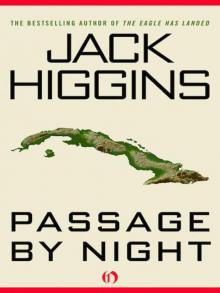 Passage by Night (v5)
Passage by Night (v5)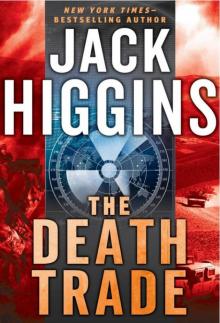 The Death Trade sd-20
The Death Trade sd-20 Cold Harbour
Cold Harbour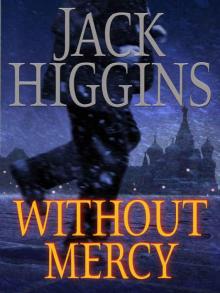 Without Mercy
Without Mercy Solo (Aka the Cretan Lover)(1980)
Solo (Aka the Cretan Lover)(1980) First Strike
First Strike Confessional - Devlin 03 (v5)
Confessional - Devlin 03 (v5)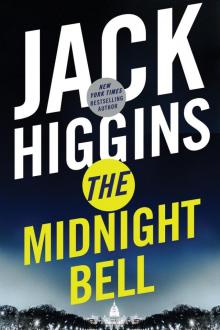 The Midnight Bell
The Midnight Bell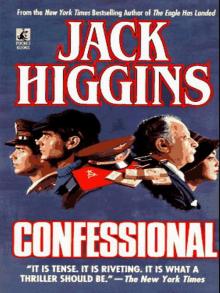 Confessional
Confessional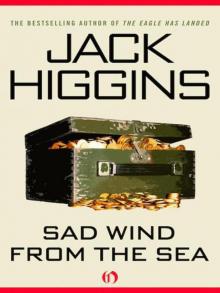 Sad Wind from the Sea (v5)
Sad Wind from the Sea (v5)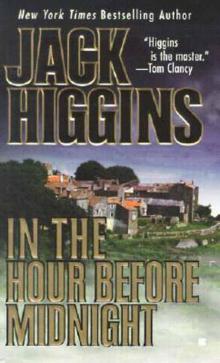 In The Hour Before Midnight aka The Sicilian Heritage
In The Hour Before Midnight aka The Sicilian Heritage Wrath of the Lion
Wrath of the Lion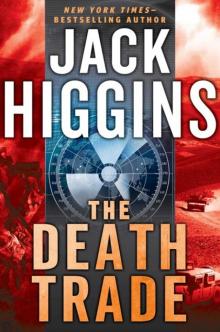 SDillon 20 - The Death Trade
SDillon 20 - The Death Trade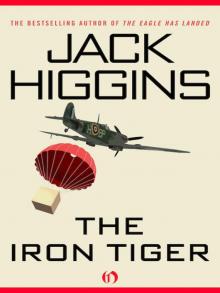 the Iron Tiger (1974)
the Iron Tiger (1974)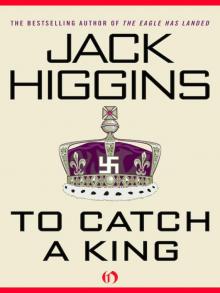 To Catch a King
To Catch a King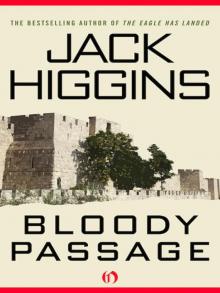 Bloody Passage (1999)
Bloody Passage (1999) Wrath of the Lion sd-8
Wrath of the Lion sd-8 Sharp Shot
Sharp Shot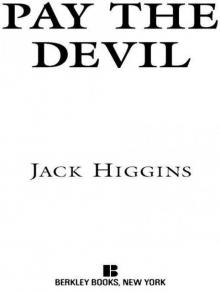 Pay the Devil (v5)
Pay the Devil (v5) A Devil Is Waiting
A Devil Is Waiting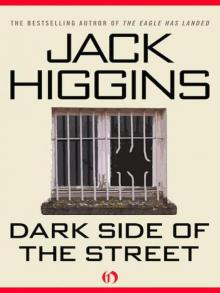 Dark Side of the Street - Simon Vaughn 01 (v5)
Dark Side of the Street - Simon Vaughn 01 (v5)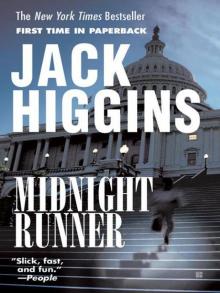 Midnight Runner - Sean Dillon 10
Midnight Runner - Sean Dillon 10 Wrath of God
Wrath of God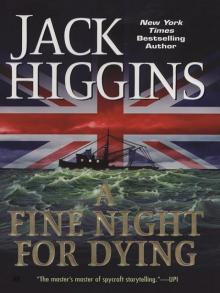 A Fine Night for Dying
A Fine Night for Dying Hell Is Too Crowded v5)
Hell Is Too Crowded v5)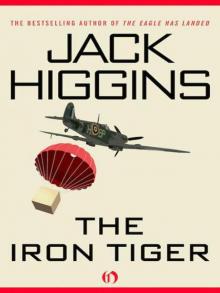 the Iron Tiger (v5)
the Iron Tiger (v5)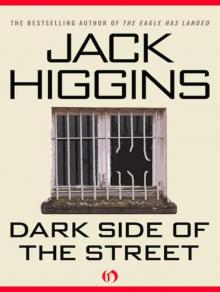 Dark Side of the Street pc-5
Dark Side of the Street pc-5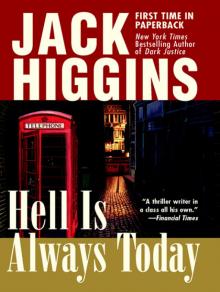 Hell Is Always Today
Hell Is Always Today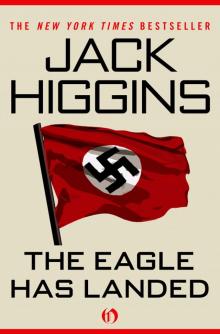 Eagle Has Landed
Eagle Has Landed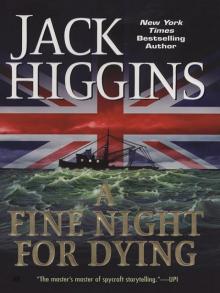 A Fine Night for Dying pc-6
A Fine Night for Dying pc-6 the Last Place God Made (v5)
the Last Place God Made (v5)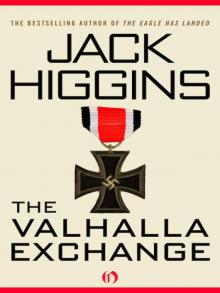 the Valhalla Exchange (1976)
the Valhalla Exchange (1976)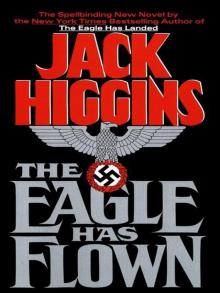 The Eagle Has Flown
The Eagle Has Flown Sure Fire
Sure Fire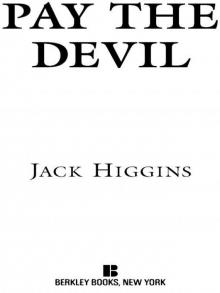 Pay the Devil (1999)
Pay the Devil (1999) Memoirs of a Dance Hall Romeo
Memoirs of a Dance Hall Romeo![a Prayer for the Dying (1974)[1] Read online](http://i1.bookreadfree.com/i1/04/02/a_prayer_for_the_dying_19741_preview.jpg) a Prayer for the Dying (1974)[1]
a Prayer for the Dying (1974)[1]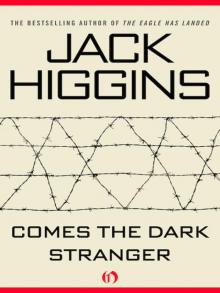 Comes the Dark Stranger
Comes the Dark Stranger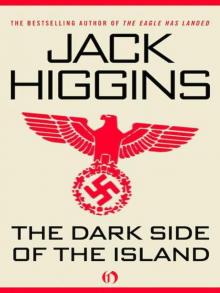 Dark Side Of the Island (v5)
Dark Side Of the Island (v5)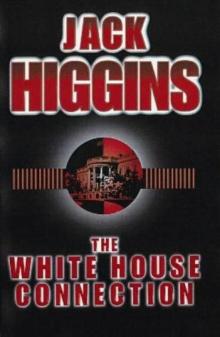 The White House Connection sd-7
The White House Connection sd-7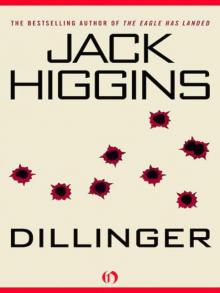 Dillinger (v5)
Dillinger (v5) Eye of the Storm
Eye of the Storm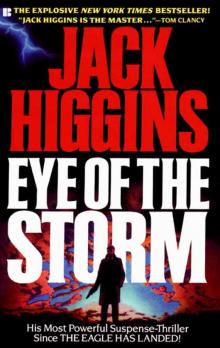 Eye Of The Storm aka Midnight Man
Eye Of The Storm aka Midnight Man A Darker Place
A Darker Place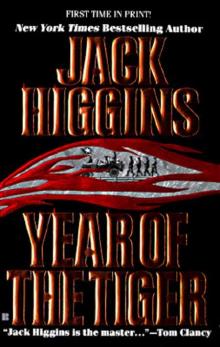 Year Of The Tiger
Year Of The Tiger Death Run
Death Run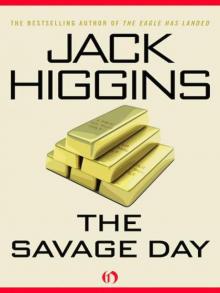 the Savage Day - Simon Vaughn 02 (v5)
the Savage Day - Simon Vaughn 02 (v5)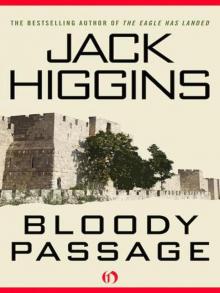 Bloody Passage (v5)
Bloody Passage (v5)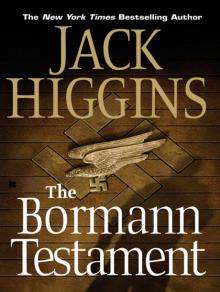 The Bormann Testament
The Bormann Testament On dangerous ground sd-3
On dangerous ground sd-3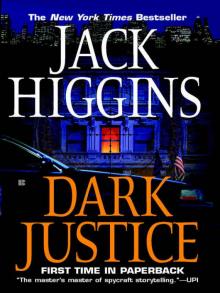 Dark Justice
Dark Justice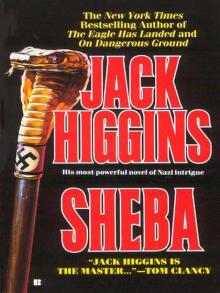 Sheba
Sheba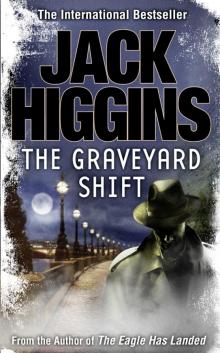 The Graveyard Shift
The Graveyard Shift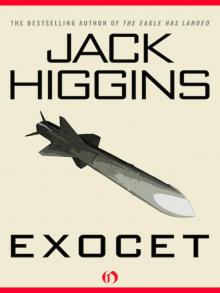 Exocet (1983)
Exocet (1983) The Wolf at the Door
The Wolf at the Door The wolf at the door sd-17
The wolf at the door sd-17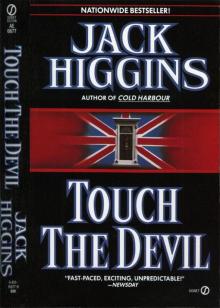 Touch The Devil
Touch The Devil The President’s Daughter
The President’s Daughter A Prayer for the Dying (v5)
A Prayer for the Dying (v5)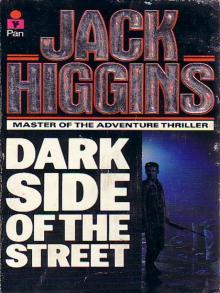 Dark Side Of The Street
Dark Side Of The Street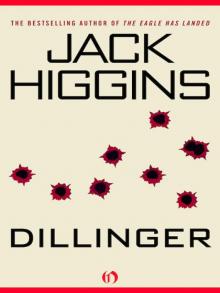 Dillinger (1983)
Dillinger (1983)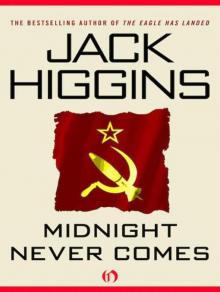 Midnight Never Comes pc-4
Midnight Never Comes pc-4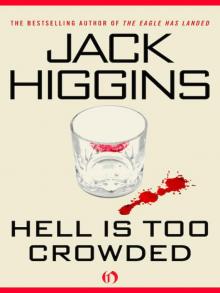 Hell Is Too Crowded (1991)
Hell Is Too Crowded (1991)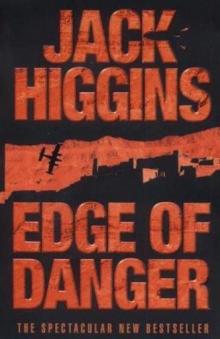 Edge of Danger sd-9
Edge of Danger sd-9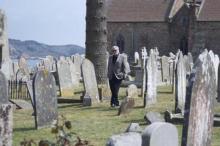 The Thousand Faces of Night (v5)
The Thousand Faces of Night (v5)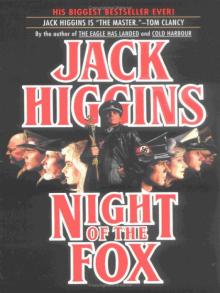 Night Of The Fox
Night Of The Fox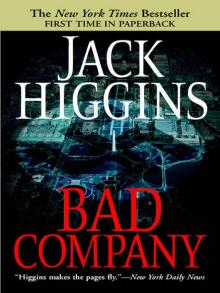 Bad Company
Bad Company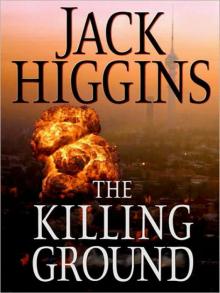 The Killing Ground
The Killing Ground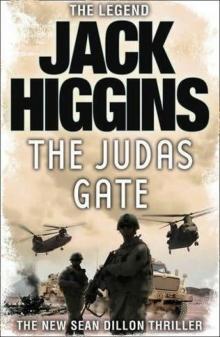 The Judas gate sd-18
The Judas gate sd-18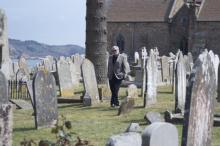 The Thousand Faces of Night (1961)
The Thousand Faces of Night (1961) Solo (Aka the Cretan Lover) (v5)
Solo (Aka the Cretan Lover) (v5)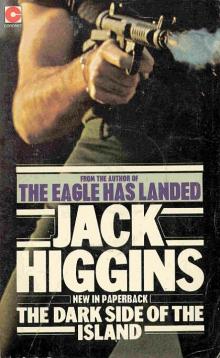 The Dark Side Of The Island
The Dark Side Of The Island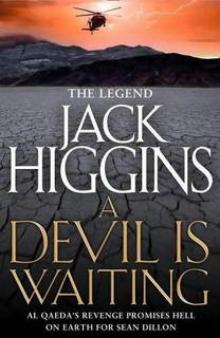 A Devil is vaiting sd-19
A Devil is vaiting sd-19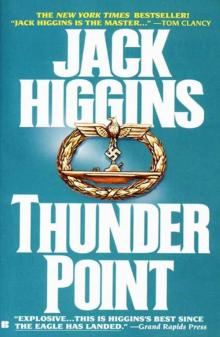 Thunder Point
Thunder Point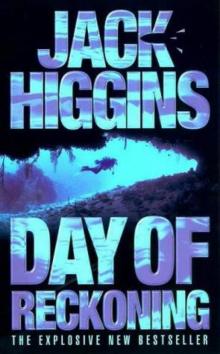 Day of Reckoning sd-8
Day of Reckoning sd-8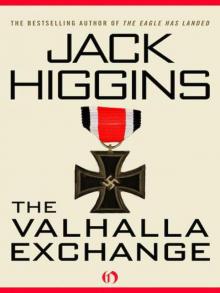 the Valhalla Exchange (v5)
the Valhalla Exchange (v5)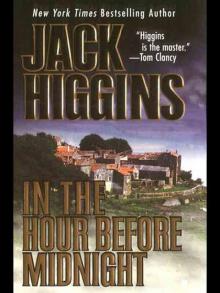 In the Hour Before Midnight
In the Hour Before Midnight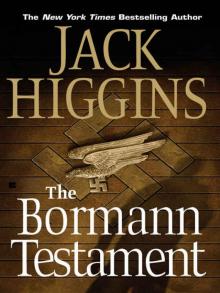 The Bormann Testament (The Testament of Caspar Schultz)
The Bormann Testament (The Testament of Caspar Schultz) The Judas Gate
The Judas Gate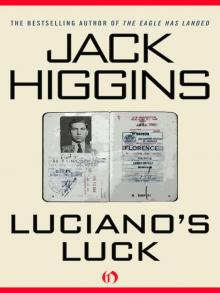 Luciano's Luck
Luciano's Luck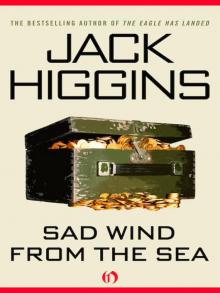 Sad Wind from the Sea (1959)
Sad Wind from the Sea (1959)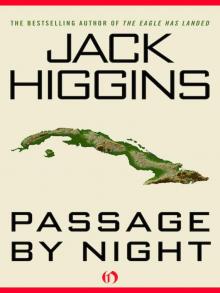 Passage by Night (1987)
Passage by Night (1987)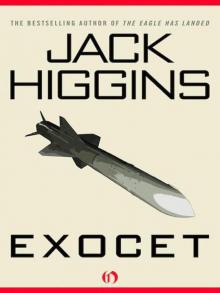 Exocet (v5)
Exocet (v5)